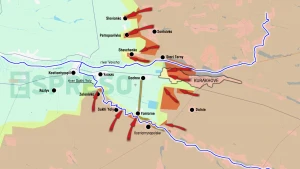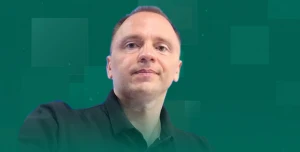
What do Niger and Belarusian helicopters over Poland have in common?
Now the Russians will try to create two new points of tension in the world: one on the Polish-Belarusian border and the other in Niger
Both conflicts are aimed at one thing: to distract the West from Ukraine, reduce arms supplies, and try to force the West to the negotiating table.
Against this backdrop, the US statement that Wagner's appearance in Poland is tantamount to the invocation of NATO Article 5 is very important, but this does not mean that the statement dramatically reduces the buffer for the Russians.
“There are several reasons for this: Russia may resort to provocations from a foreign country, counting on the assumption that it would not lead to a full-fledged military conflict. There will be border provocations, raising the stakes, and, as the cherry on top, the obligatory threats of nuclear weapons.”
It is still difficult to understand Lukashenko's logic, but it seems to boil down to two points:
1. There will be no big war.
2. This situation is a chance for him to once again become a man who is shaking hands with world leaders. The second point is not very realistic, but we all remember how Gaddafi, after being isolated, became Europe's best friend, only to meet a tragic end later.
So, for now, it looks like we are at the beginning of this conflict and the most likely scenario is that the conflict will escalate over the next couple of months. The likelihood of serious military clashes is low, but the threat of flexing nuclear muscle is high. At the same time, we will have to keep quite large reserves in the north and northwest, because the “Shebekino” scenario may reoccur.
Regarding Niger, it is worth noting that this country is responsible for nearly a third of the EU's uranium consumption, with a significant portion going to France. The junta's announcement to halt uranium exports to Europe, coupled with France's preparations for a potential ground operation (given the presence of a French military base in the country), has created a challenging situation, particularly for the French. For France, getting involved in the war in Niger, against the backdrop of neighboring Mali and Burkina Faso saying that they view the ground operation as an invasion of their territory, could mean getting involved in a serious conflict in a large part of Africa.
“As for the Russians, they will be able to fight there primarily through Wagner forces, which could work to our advantage. Putin's strategy in such situations is straightforward: providing limited military support and encouraging the leader to hold on until the end (a tactic that has previously worked with figures like Maduro and Assad). Currently, Putin's main objective seems to be buying time and setting the stage for further escalation. Much will now depend on the French army and its readiness to resolve the conflict quickly.”
In summary, Russia has introduced two additional elements, the nuclear power plant and nuclear blackmail, to raise the stakes in the grain deal negotiations. This move indirectly indicates that the "window for negotiations" in the autumn is rapidly closing. An important factor to watch will be the decision on whether or not to announce mobilization under the pretext of providing aid to Belarus. Lukashenko should also consider responding with a mirror gesture.
But, in any case, we need to prepare for at least a few very important things:
- a major information war will begin in the West. The essence of this war comes down to a formula: "Why give so much to Ukraine, we need to think about our own security", especially against the backdrop of the elections in Poland;
- we need to prepare for a difficult winter more actively now.
- we need to be ready for Russia to announce a new wave of mobilization now (Putin has time until October, then the elections).
Source
About the author: Vadym Denysenko, political scientist.
The editorial staff do not always share the opinions expressed by the blog authors.
- News












































